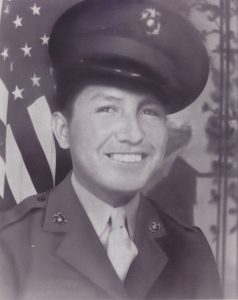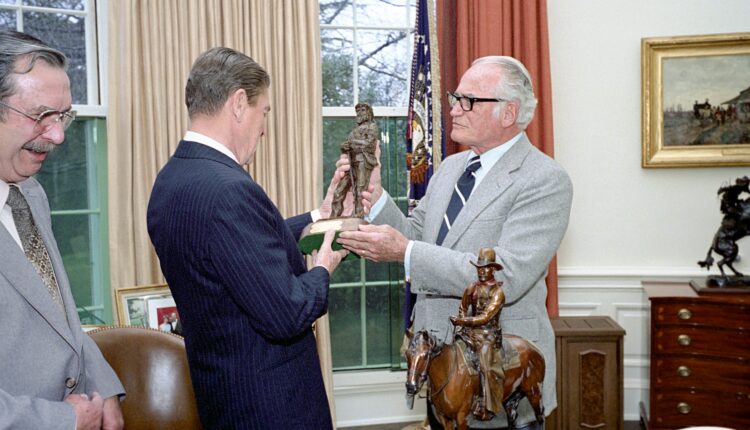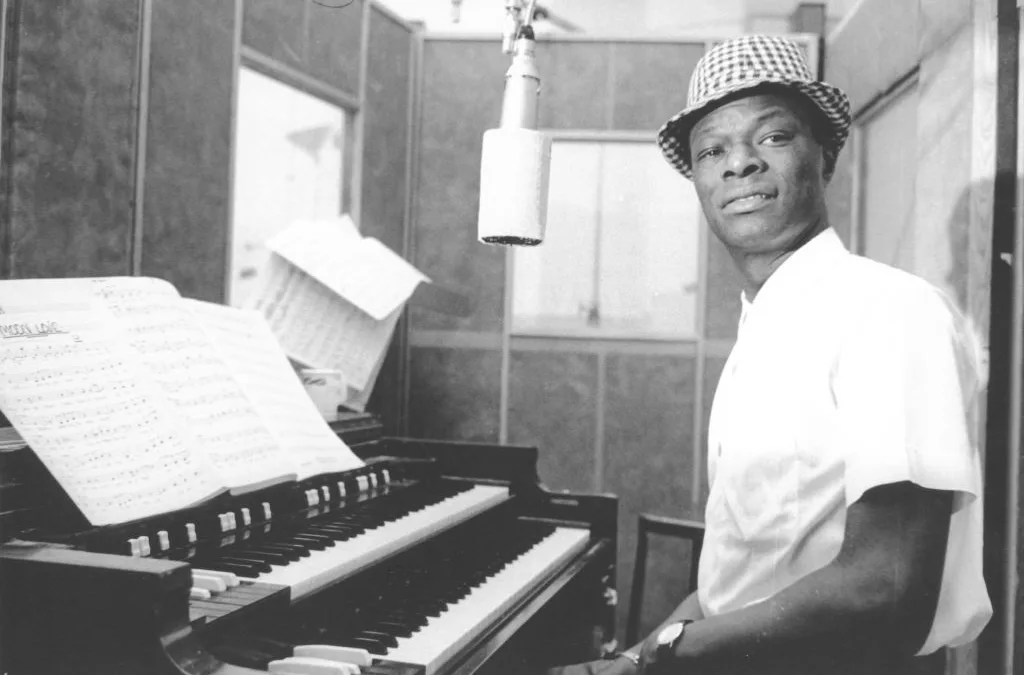
Corporal Henry Bake Jr., (left) and Private First Class George H. Kirk, Navajo Indians serving with a Marine Signal Unit, operate a portable radio set in a clearing they’ve just hacked in the dense jungle close behind the front lines. (National Archives photo)
The Pentagon called the removal of Navajo Code Talker content a “mistake,” vowing Tuesday to restore material taken offline during a scrub of DEI content.
The explanation didn’t sit well with Peter MacDonald, 96, one of just two surviving Code Talkers and a former Navajo Nation chairman. He objected to any implication that celebrating heroes who helped to win World War II equates with “diversity, equity and inclusion.”
“Some of these people who are taking the pictures or stories off their shelves are either racist or they have absolutely no understanding of what DEI stands for,” MacDonald told Cronkite News by phone. “You’re not only erasing Navajo culture but you’re also eliminating Navajo code.”
Defense Department officials said the mistake occurred as part of the effort to comply with President Donald Trump’s order to end DEI policies and delete all references to DEI.
Axios first reported the deletions on Monday, prompting an uproar.
Axios said it found at least 10 articles that mentioned Code Talkers that had disappeared from Army and Defense Department websites, based on a search of those sites and the Internet Archive.

Peter MacDonald in 1944, when the future Navajo Nation chairman joined the Marines and became a Code Talker. (Photo courtesy of Peter MacDonald)
“This is shameful,” Sen. Ruben Gallego, D-Arizona, a Marine combat veteran, posted on X. “Trump can’t erase history just because he feels like it.”
Pentagon press secretary John Ullyot defended the deletions on Monday, telling Axios that as Defense Secretary Pete Hegseth had said, “DEI is dead at the Defense Department. … We are pleased by the rapid compliance across the department with the directive removing DEI content from all platforms.”
A day later, the press office called the deletions a “mistake” that would soon be rectified. Through the afternoon, some pages were restored but others remained offline. Server errors showed up in place of stories about the Marines who helped win World War II by using an unbreakable code in the Diné language to pass messages at Iwo Jima and other battles.
An Army article about their contributions remained offline. So did a Defense Department story about the role Code Talkers played in the U.S. victories in both world wars.
A Nov. 5 story about an Air Force flight instructor whose grandfather served as a Code Talker went back online Tuesday afternoon after returning a “404” error.
“Recognizing the work of the Navajo Code Talkers is profoundly significant to the Navajo Nation,” Navajo President Buu Nygren wrote Tuesday in a letter to Pentagon officials demanding clarification on the removals.
Sen. Mark Kelly, D-Arizona, a former Navy fighter pilot, accused Trump on X of “trying to wash away the accomplishments of the Navajo Code Talkers.”
More than 400 Navajos served as Code Talkers during World War II. The program remained classified until 1968, according to the National Museum of the American Indian.
In 2000, Congress approved Congressional Gold Medals for the original 29 Navajos who developed the code – the nation’s highest civilian award – and silver medals for others who served in the program.
“With the Navajo language they defeated the enemy” is inscribed on the back in the Navajo language.
Records from the Navajo Nation list three surviving Code Talkers, though one of them, John Kinsel, died in October at age 107. The others are MacDonald and Thomas Begay.

The 10 best movies set in Arizona
From action and comedy to thrillers and heartfelt dramas, these 10 movies set in Arizona capture everything there is to love about the Grand Canyon...

6 influential women who shaped Arizona history
From breaking glass ceilings to championing for the rights of marginalized communities, these women’s stories are worth sharing. The history books...

Phoenix’s secret mob history: From assassinations to ecstasy rings
We’re unpacking Phoenix’s strong ties to the Mafia to explore an underworld many know little about to this day. When one thinks of mob cities in...

Explore Black history from the year you were born
Black History Month is dedicated to celebrating the achievements and reflecting on the experiences of Black Americans. What began as a week in 1926...





